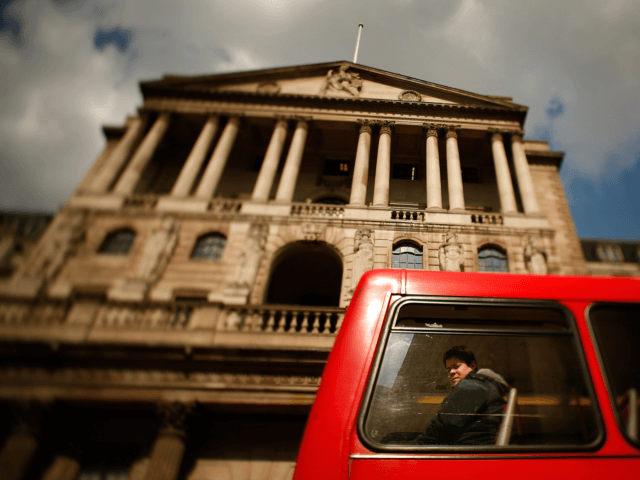The decades-high level of inflation may last for years rather than be a temporary spike, a former top economist from the Bank of England has warned.
The ongoing cost of living crisis in the United Kingdom, which has seen inflation rise at its fastest rate in 30 years, spurred on by two years of lockdown restrictions, supply chain issues, the global energy crisis, and the war in Ukraine and subsequent sanctions on Russia, is likely here to stay for the foreseable future, according to Andy Haldane, formerly the cheif economist at the Bank of England.
Asked as to whether he believed inflation could hit 10 per cent in Britain, the leading economist told LBC Radio on Monday: “It could. I fear it might.”
“I’m slightly fearful, it might stick around for some little while as well. This won’t be come and gone in a matter of months. I think this could be years rather than months,” Haldane said.
“We’re now looking prospectively at double digit interest rate of inflation, which is not quite getting back to the 1970s but getting on that way.”
Last week, the Bank of England rose its key interest rate by 0.25 per cent, taking rates to thier highest level in 13 years at one per cent. While the central bankers justified the move as an attempt to curb inflation, others have warned that it may risk sending the economy into a recession.
The founder of the investment firm Cribstone Strategic Macro, Mike Harris told CNBC last week that the UK “imports inflation” from other coutnries around the world, with the economy being heavily intergrated with the European Union and United States, in particular.
Therefore, Harris said that the increase to interest rates by the Bank of England may result in nothing more than reducing household incomes rather than its indended effect of lowering inflation by influencing supply and demand.
“Here we’re actually not really dealing with a pure situation where we’re trying to slow the economy, we are ultimately trying to rebalance expectations, and the UK is a country that imports inflation … So we’re not effectively in a position where we’re free effectively to just focus on supply and demand,” he said.
“We get stuck in a situation where global inflation is driving our inflation at this stage, we have to hit the consumer and instead of just reducing the propensity to spend in the future, we’re actually taking further money out of household income, which doesn’t happen in the U.S.”
Meanwhile, average salaries are expected to rise by six per cent this year, according to the Bank of England projections. However, this will likely fall behind inflation, which is already at seven per cent, meaning that the average Briton will likely see a reduction in salaray in real terms.
The former chief ecnomist at the Bank of England, who previously served as the head of Prime Minister Boris Johnson’s “levelling up” taskforce, went on to warn that there is a better than a fifty per cent chance that the British economy could dive into a recession.
Despite such concerns, the British government has steadfastly refused to cut taxes on energy — a key factor driving up inflation — or indeed on businesses and individuals to spur economic growth.
While the Conservative government had campaigned on lowering taxes, the government of Boris Johnson has imposed the highest tax burden on the public in over seventy years under the justification of paying for the massive spending spree during the coronavirus lockdowns over the previous two years.
Follow Kurt Zindulka on Twitter here @KurtZindulka

COMMENTS
Please let us know if you're having issues with commenting.